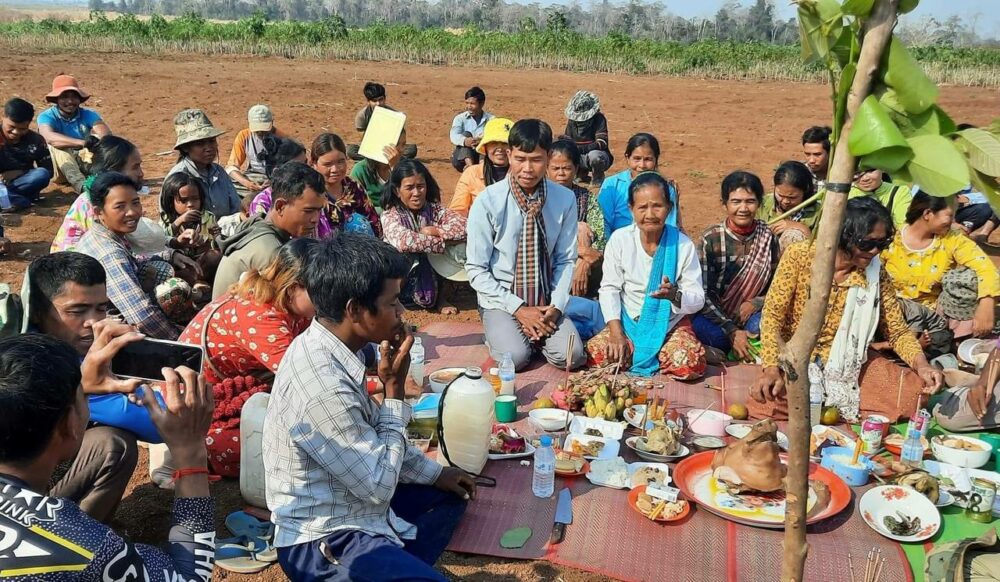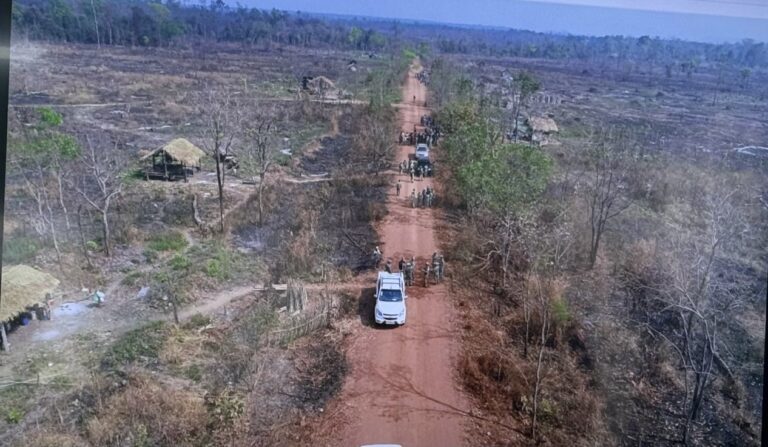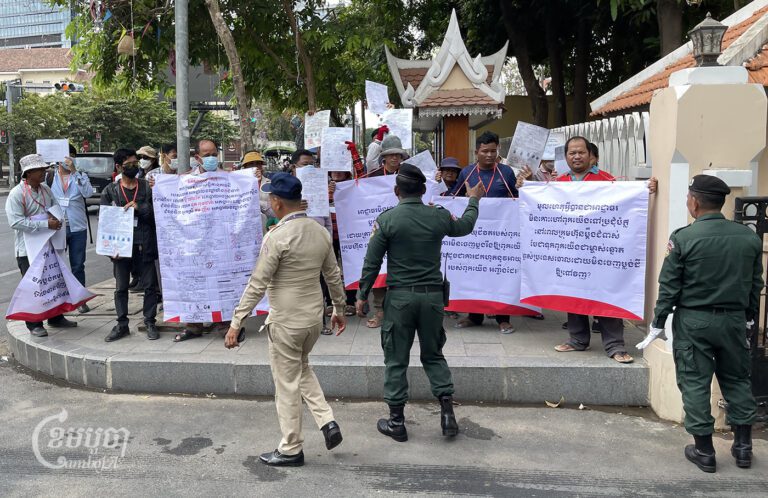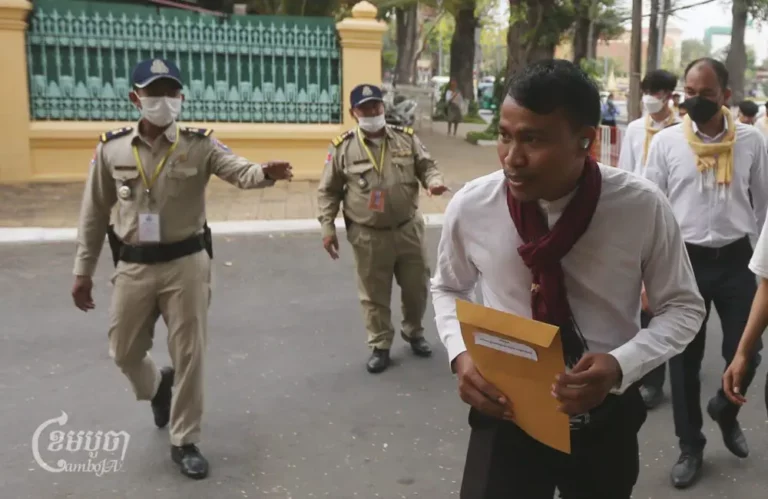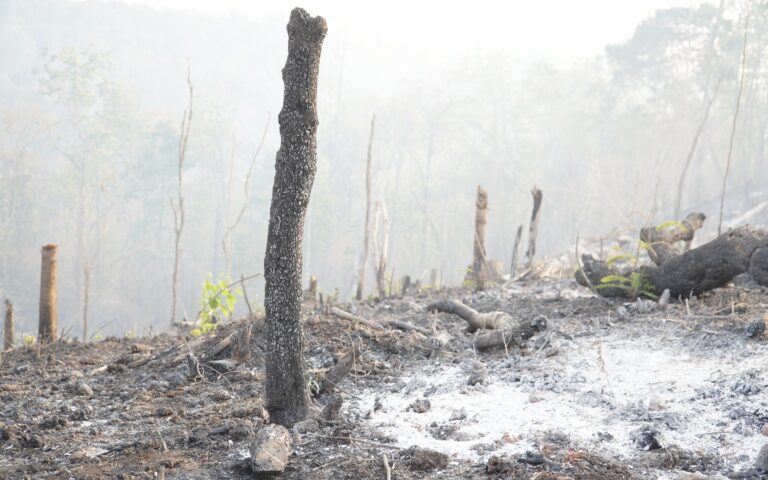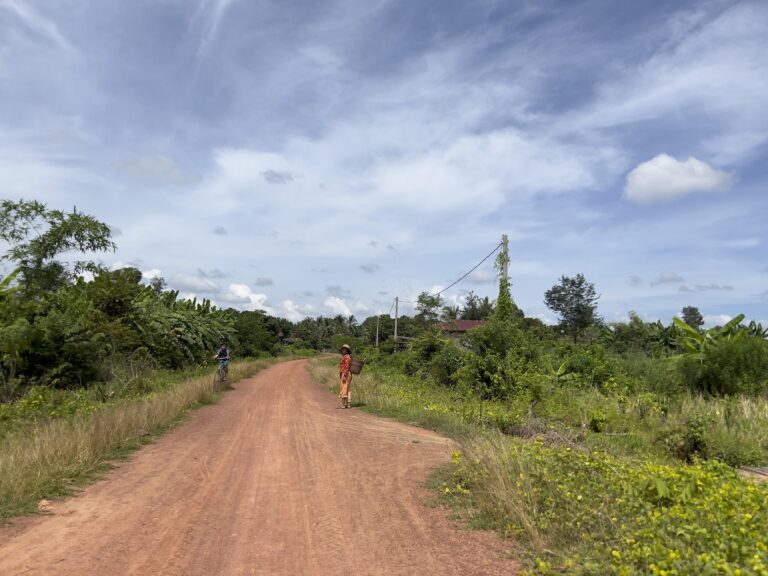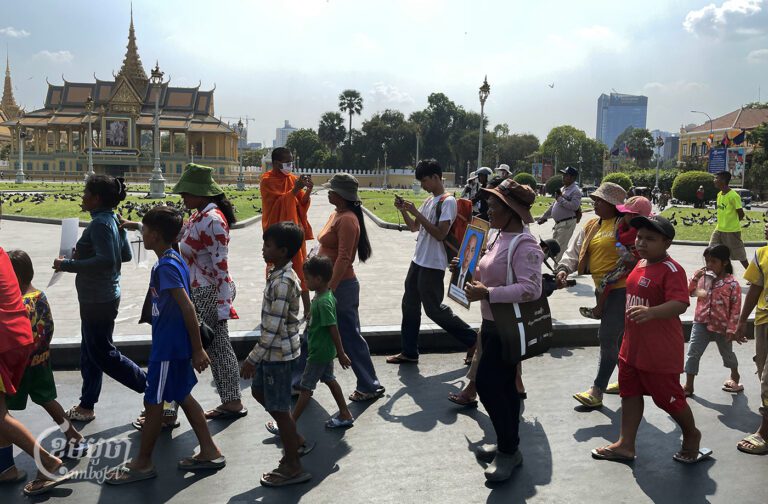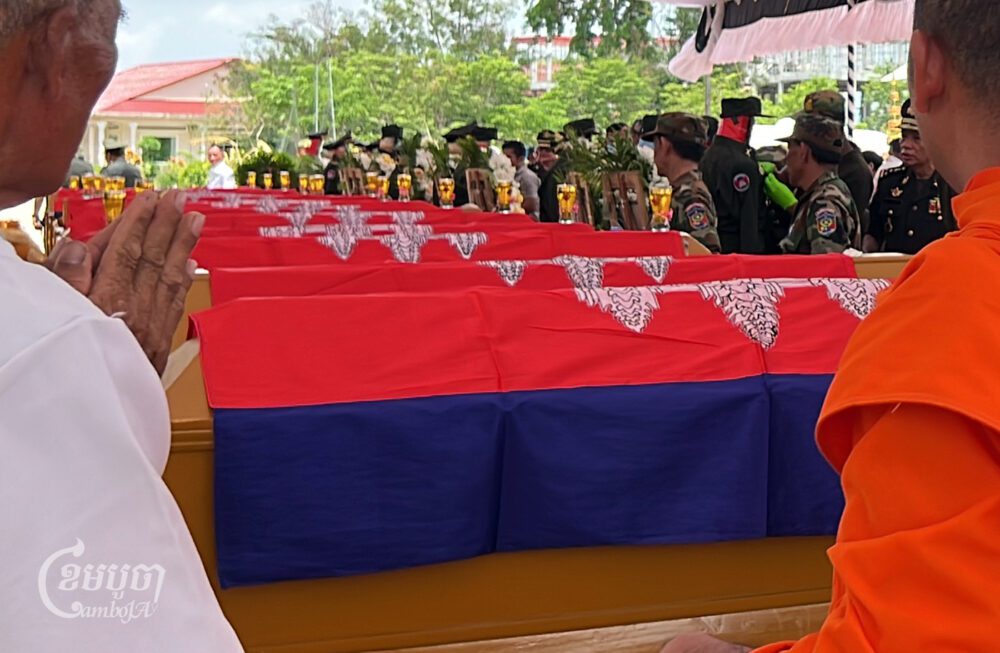Kuy indigenous community in Bos Village and Preus Ka’ak Village, M’lou Prey II Commune, Chheb District in Preah Vihear Province urge the authorities to help them seek justice after being allegedly assaulted by a group of men. The villagers suspect they are sugarcane plantation workers who destroyed their farmland.
Community representative, Pean Sophat, told CamboJA that on February 11, 2024, villagers came together to stop three tractors known to belong to local Chheang Kong Nov from plowing the area which the villagers had long cultivated.
Sophat said when they arrived at construction site 11 to meet Kong Nov, his people allegedly closed the gate and assaulted the villagers. Three villagers were injured.
Another villager, Soeun Tha, a 30-year-old indigenous man, said Kong Nov “always” plows people’s land, so this was not the first time. Hence, the reason behind the villagers’ decision to stop the activity and get answers. Instead, Kong Nov’s team used violence on the villagers.
“When we arrived at the site, he ordered his team to close the door and use violence against us. He grabbed another villager’s collar and also beat three people,” Tha recounted.
According to Tha, the government allocated the land that was cultivated by the villagers to a Chinese firm in 2011. When the Chinese company collapsed in 2019, the locals continued to cultivate on the land again, they are planting potatoes and rice. But recently, a group of men with Kong Nov started plowing the land to plant potatoes and abused villagers.
“It is wrong and unfair, and the authorities in the province are not making any effort to help us,” said Tha.
In January, five Chinese companies signed 50-year lease contracts over the state land. The Cambodia-registered companies plan to operate sugarcane plantations and other agro-industrial crops on the land measuring 20,179 hectares in total.
However, Tha said those who came did not have a permit or a letter to prove that they had permission to clear the land.
The villagers are not interested in opposing the company, he added. “We just want to negotiate a solution because we have been farming on the land for a long time.”
Chief of M’lou Prey II commune Kan Sovankea told CamboJA that the local authority was aware of the matter, adding that it would be transferred to the district authority for intervention. He could not resolve the issue as it is “beyond his capacity”.
He explained that the people from his commune have been farming on the company’s land known as Hengfu group although the latter stopped planting in 2019. But, he did not know the exact number of families who had been doing that.
“Now I mediate for them [with Kong Nov]. In fact, the villagers have planted crops on the company land and want to continue to do more,” said Sovankea.
The villagers have filed a police report following the attack, said 37-year-old Nab Noeun, adding that they asked the commune authorities to help secure justice for those with land but are now “disturbed by unidentified people”.
“I have filed a complaint but I don’t know the outcome yet. It is unfair because our land has been used for a long time. There are plants there but they have come to plow and destroy our crops,” she added.
While the villagers do not know who the person was, she believed that there must be a “powerful person” behind the attack, as they dared to harm them.
“Maybe there was someone behind him. If not, he would never have dared to do so and the authorities are still silent,” she said.
There are 14 ethnic groups and 155 indigenous communities in Cambodia, according to a study on the demographic and socioeconomic state of indigenous peoples in the country published in 2021 by the Ministry of Planning and the Ministry of Rural Development.
A new code of environment and natural resources was enacted by the National Assembly in June 2023.
Another resident, Khat Sisophan, hoped that the government would stop giving away land used by the people to plant their crops to private companies, while asking them to withdraw the land from Rui Feng chinese sugarcane company.
He said villagers need farmlands to support their families as their livelihoods are in dire condition and they are in debt.
“The people of this village are facing difficulties and aren’t happy nowadays. It is not fair [that land is being privatized for companies].
“I want to see the new government reform the law and respect human rights, including those who live in remote areas, like us. Without farmlands, we would not be able to live comfortably,” Sisophan said.
Deputy Provincial Governor of Preah Vihear Province Nop Vuthy urged people to file a complaint with the authorities with regards to the violence. That is, “as long as they have evidence,” Vuthy told CamboJA.
He said Preah Vihear provincial authorities made a contract with villagers to “make them understand” that the land had been given to private companies.
The contract also mentioned that they should “stop planting on the investment land” but, “every year and every season”, villagers continue to grow crops on the land.
“We have given it to Chinese companies,” Vuthy said. “[Villagers] always say [it’s their land]. Obviously it’s not like that. The land is already registered as a state land.
“Now, we have a state land commission. We’re investigating the history of the land, whether they really own the land and if they have adequate documents. The provincial authority will take action accordingly.”
According to Article 25 of the Land Law, indigenous community land consists of lands where communities have established settlements and engaged in traditional agriculture. The lands are not only those regularly cultivated, but also those which are reserved for seasonal farming and are recognized by the administrative authorities.
Poek Sophorn, executive director of Ponlok Khmer, said the authorities should help the indigenous people acquire justice and calm the situation as they have been cultivating the land for a long time.
Indigenous communities are protected by the law and possess the right to access land.
“But the authorities don’t seem to care much about the people’s rights and they might lose their right to the land.
“Why not help them to register their land? At least help them secure land ownership for private use, this would be fairer,” said Sophorn.


